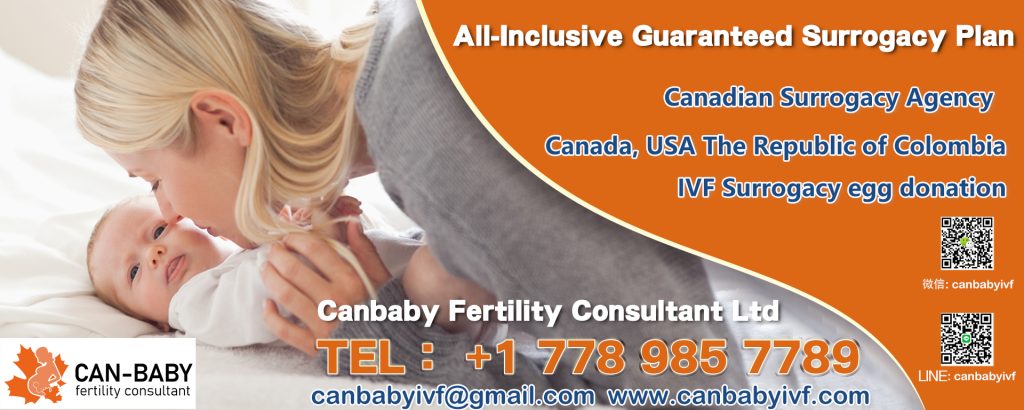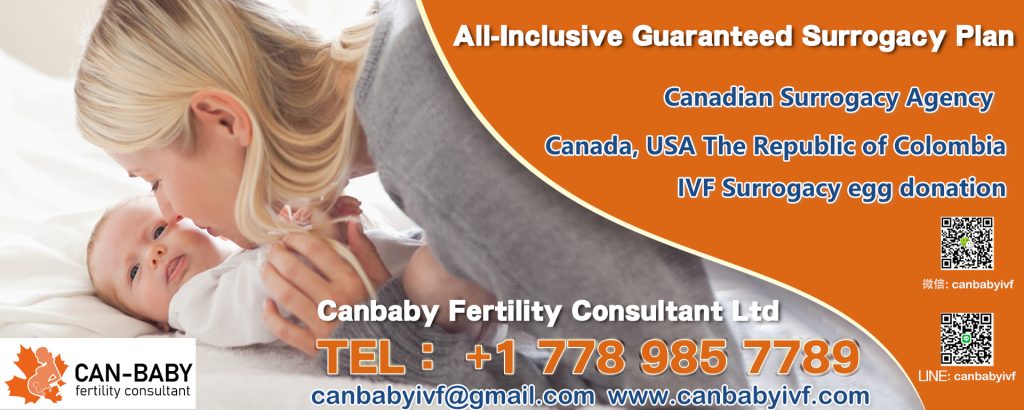Disclaimer: This article is an original work by Canbaby Fertility Consultant LTD, a Canadian surrogacy consulting company. Reproduction or redistribution without permission is strictly prohibited.

Primary keywords targeted: Canada surrogacy, international surrogacy for Canadians, surrogacy cost Canada, overseas surrogacy Canada, Canadian intended parents, affordable surrogacy options
Introduction: Why More Canadians Are Considering International Surrogacy
Surrogacy is an increasingly common family-building option for Canadian intended parents, particularly those facing infertility, same-sex couples, or single individuals. However, due to legal limitations and cost constraints within Canada, many are exploring international surrogacy options. While the process can be complex, international surrogacy often offers greater flexibility, access to willing surrogates, and in some cases, faster timelines.
But how much does international surrogacy really cost for Canadians? And what factors influence the total budget? In this article, we break down the true costs of international surrogacy for Canadians, offering a comprehensive guide to budgeting, comparing destinations, and understanding hidden expenses.
Why Not Stay in Canada? The Legal and Practical Challenges
Before diving into costs, it’s important to understand why Canadians are looking abroad for surrogacy:
1. Non-Commercial Surrogacy Only
Under the Assisted Human Reproduction Act (AHRA), Canada prohibits commercial surrogacy. This means surrogates cannot be paid beyond reasonable expenses such as travel or maternity clothing. While this ensures ethical protections, it limits the number of willing surrogates, creating long waitlists.
2. Illegal to Pay Egg Donors or Recruit Surrogates for Profit
It is also illegal to pay egg donors beyond reimbursements, or to run agencies that charge for matching services. As a result, many Canadian intended parents turn to international destinations where such services are openly available and legally protected.
3. Unpredictable Timelines
Because of the above restrictions, it can take 2-4 years or more to find a surrogate within Canada, while international clinics often have surrogates ready to match within 1–6 months.
What Countries Are Popular for Canadian Intended Parents?
Here are some of the most common international surrogacy destinations for Canadians:
| Country | Average Total Cost (CAD) | Commercial Surrogacy Legal? | Wait Time |
| United States | $120,000–$180,000 | Yes (in many states) | 0–6 months |
| Mexico | $75,000–$100,000 | Yes (select states) | 1–3 months |
| Colombia | $65,000–$95,000 | Yes (currently available) | 1–4 months |
| Ukraine (pre-war) | $60,000–$90,000 | Yes (for heterosexual couples) | Suspended due to conflict |
| Georgia (country) | $55,000–$85,000 | Yes (for heterosexual couples) | 1–6 months |
| Argentina | $55,000–$80,000 | Yes | 2–6 months |
The Main Cost Components of International Surrogacy
1. Agency Fees ($15,000–$35,000 CAD)
This is the fee paid to the surrogacy agency for coordinating the entire process, including:
- Screening and matching with a surrogate
- Legal coordination
- Case management
- Psychological support
This is often a one-time fee, though some agencies charge in stages.
2. Surrogate Compensation ($15,000–$50,000 CAD)
Unlike in Canada, many countries legally allow paying surrogates for their time and effort. This compensation varies depending on the country, surrogate experience, and whether she’s had previous successful surrogacy journeys.
Some surrogate compensation models are split into:
- Base compensation
- Monthly allowance
- Milestone payments (e.g., fetal heartbeat, delivery)
3. Legal Fees ($5,000–$15,000 CAD)
International surrogacy requires:
- Contracts between intended parents and surrogate
- Parentage orders
- Court documentation
- Immigration and citizenship filings for the child
You’ll need local legal representation and likely a Canadian lawyer to facilitate citizenship or passport applications.
4. Medical and IVF Costs ($15,000–$40,000 CAD)
These include:
- Egg retrieval and fertilization (IVF)
- Embryo freezing and storage
- Embryo transfer
- Medications for the surrogate
- Monitoring and prenatal care
- C-section or vaginal delivery
Some programs may include egg donation if needed, adding an extra $5,000–$10,000 CAD.
5. Travel and Accommodation ($5,000–$20,000 CAD)
You’ll need to travel at least:
- Once for embryo transfer or medical screenings (optional)
- Once during the third trimester
- Once at the time of delivery (required)
Accommodation, translation services, meals, transportation, and newborn care for 3–8 weeks can add up.
6. Citizenship and Documentation Costs ($2,000–$6,000 CAD)
After your baby is born abroad, you’ll need to:
- Apply for Canadian citizenship
- Obtain a Canadian passport
- Possibly file local birth certificates, translations, and notarized affidavits
Hiring a Canadian immigration consultant or lawyer may help.
Hidden or Unexpected Costs to Watch For
- NICU or Premature Birth: If the baby is born early or has complications, neonatal care costs can quickly exceed $10,000–$100,000 CAD in some countries like the U.S. Travel insurance for newborns is rare, so budgeting a safety buffer is critical.
- Rematching Fees: If the surrogate fails a medical screening or backs out early, you may need to pay additional fees for a new match.
- Twins or Multiples: Twin pregnancies may double medical and surrogate fees. Some clinics may transfer more than one embryo to increase success rates unless you request single embryo transfer.
- DNA Testing: Required in some countries (or by Canadian authorities) to prove genetic parentage before issuing documents.
Tips for Managing the Cost of International Surrogacy
✅ Compare Multiple Agencies
Don’t go with the first agency you find. Request detailed cost breakdowns, check references, and understand what’s included vs. extra.
✅ Ask for Package Deals
Some clinics offer all-inclusive packages, which bundle medical, legal, and surrogate fees. Be sure to review contract fine print.
✅ Understand Refund Policies
Some programs offer partial refunds if a pregnancy is not achieved after a set number of embryo transfers. Others may offer guarantees (at higher prices).
✅ Budget a Contingency Fund
Add an extra 15–25% of your total budget for emergencies, rematches, or travel changes.
Is International Surrogacy More Affordable than Canada?
Surprisingly, yes — in some cases.
Although Canada has public healthcare and no surrogate compensation, the scarcity of surrogates often leads to years-long delays, legal uncertainty, and emotional fatigue. Additionally, some Canadians end up paying “under-the-table” reimbursements, consultant fees, or traveling within Canada, adding hidden costs.
In contrast, international surrogacy:
- Offers transparent pricing
- Ensures faster matches
- Provides comprehensive packages
- May cost the same or less, especially in Latin America or Eastern Europe
Is It Legal for Canadians to Pursue Surrogacy Abroad?
Yes, Canadian law does not prohibit citizens from engaging in international surrogacy, provided the destination country allows it.
However, it’s critical to ensure:
- The country legally recognizes intended parents as legal guardians from birth
- You follow Canada’s immigration and citizenship procedures
- You avoid countries with recent bans or political instability
Countries like Cambodia, Thailand, and Nepal have banned surrogacy for foreigners in recent years — so working with reputable, up-to-date consultants is key.
Conclusion: Planning Ahead Makes All the Difference
International surrogacy can be a viable, affordable, and timely solution for Canadian intended parents. But success depends on informed planning, transparent budgeting, and choosing the right country and partners.
If you’re a Canadian exploring surrogacy abroad, take the time to:
- Understand each cost element
- Interview multiple agencies and clinics
- Review legal and medical protocols
- Prepare financially and emotionally
By breaking down the costs and removing uncertainties, you can confidently take your next step toward parenthood—no matter where in the world your journey leads you.
Frequently Asked Questions (FAQs)
How long does international surrogacy take for Canadians?
Typically 12–18 months from start to finish, depending on embryo readiness and legal processes.
Is international surrogacy tax-deductible for Canadians?
Surrogacy expenses may be eligible under the Medical Expense Tax Credit (METC) if you are using your own gametes. Speak to a Canadian tax professional.
Can single or LGBTQ+ Canadians pursue surrogacy abroad?
Yes. Many countries like the U.S., Colombia, and Argentina support LGBTQ+ and single intended parents. Always confirm with your chosen agency.

